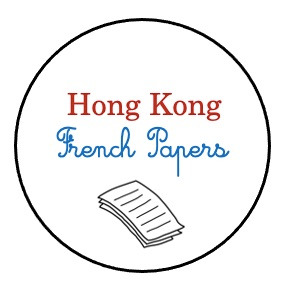How scientific monitoring can help academic translators
There are many reasons why it is essential for academic translators to keep up to date with their field(s) of specialisation.
ACADEMIC
Hong Kong French Papers
2 min read


Scientific monitoring is exhausting, it takes a lot of time and concentration, it is not really remunerated or appreciated at its true value. It involves spending hours gathering information about the latest scientific publications in a given field, all around the world. Not exactly appealing.
So why do scientific monitoring when you are already doing academic translation? Isn't it enough to translate all these long papers that your customers send you? After all, if you stick to your specialist field and maintain a high level of accuracy, it should not be rocket science...
For a start, because it saves you time. Imagine for a moment that you are in the middle of a translation and you come across a term that you have never come across before, yet which seems to be the focal point of the research work you are translating. The next logical step would be to look for an equivalent of that term in your target language, which could be very time consuming.
With regular scientific monitoring, this problem can be avoided if the academic translators create a specialised database as they go along. This database will prove to be useful to them and will be used and reused ad infinitum, turning scientific monitoring into an opportunity of creating a free translation tool.
Secondly, if you are not marketing your services to clients looking for an English translation, you are most probably offering academic translation to an audience who is unfamiliar with the world of research and scientific publication in your target language. This would mean not only selling your services to these potential customers, but also briefing them on publication opportunities in your target language and the topics that appear in current calls for papers for instance. From this perspective, promoting your services can become very difficult without scientific monitoring because it would be like promoting a service and knowing only about half of this service.
Finally, and sad to say, the world of scientific publication is largely dominated by English and it is a safe bet that your potential clients will not understand the point of publishing in your target language. So it is up to you to show them the way and arouse their curiosity about multilingualism in the world of research. Why should they do it? Why should they publish in your target language? To take the example of our small company, we translate from English into French in several fields of the humanities and social sciences, including neuropsycholinguistics, a discipline whose progress owes much to French and French-speaking researchers. Publishing in French would therefore help our clients generate fruitful interactions and meaningful relationships with different French-speaking scientific communities who work in the same field, who can of course read in English when it is needed, but who definitely prefer to read in their native language.
To sum up, scientific monitoring can be long and tedious, but with the right tools - and there are many - it can take your level of specialisation to new heights, helping you stand out from the crowd.
WhatsApp : +852 9825 2484 info@hkfrenchpapers.com Find us on LinkedIn
® Hong Kong French Papers Ltd 2024


Talk to us today. We want to tailor our services around your French language-related needs so that we can reach the desired outcome together.


